“Captain America: Brave New World,” the 35th installment in the ever-expanding Marvel Cinematic Universe, drops on Disney+ on May 28, and with it comes renewed controversy over its inclusion of Israeli superhero Sabra, portrayed by Israeli actress Shira Haas.
Haas (who starred in Netflix’s “Unorthodox” and “Shtisel”) plays Ruth Bat-Seraph, a character who, in the comics, dons a white-and-blue costume and fights under the codename Sabra. She stars alongside Harrison Ford as U.S. president Thaddeus “Thunderbolt” Ross and Anthony Mackie as Sam Wilson, the new Captain America.
From the moment Haas’ casting was announced, the backlash was swift and fierce, particularly from anti-Israel activists who flooded social media and the entertainment press with calls to boycott the film. The character was labeled “Zionist propaganda,” accused of “dehumanizing Palestinians,” and some even claimed her inclusion might “exacerbate tensions in the Middle East.”
In response, Marvel issued a statement just six days after the announcement, saying the character would be “freshly imagined” for the screen, seemingly an effort to diffuse the uproar. But this, in turn, sparked outrage from the other side: Jewish organizations and commentators who saw the reported changes as erasure and capitulation.
So yes, Marvel did change Sabra. And that’s not a bad thing.
Fury and fallout over Sabra
Media coverage, by and large, has been sympathetic toward the anti-Israel criticism, especially following the Oct. 7 Hamas attack and subsequent war.
Newsweek called Sabra “a huge headache for Disney,” while The New York Times irresponsibly wrote that “Sabra is also the name of a refugee camp in Lebanon where a Christian militia massacred hundreds of Palestinians while Israeli troops stood by 40 years ago,” despite the fact that the character predates that event by two years. The term “Sabra” — a nickname for native Israelis, named after a local prickly pear cactus with a sweet interior and hard thorny exterior — dates back to the 1930s.
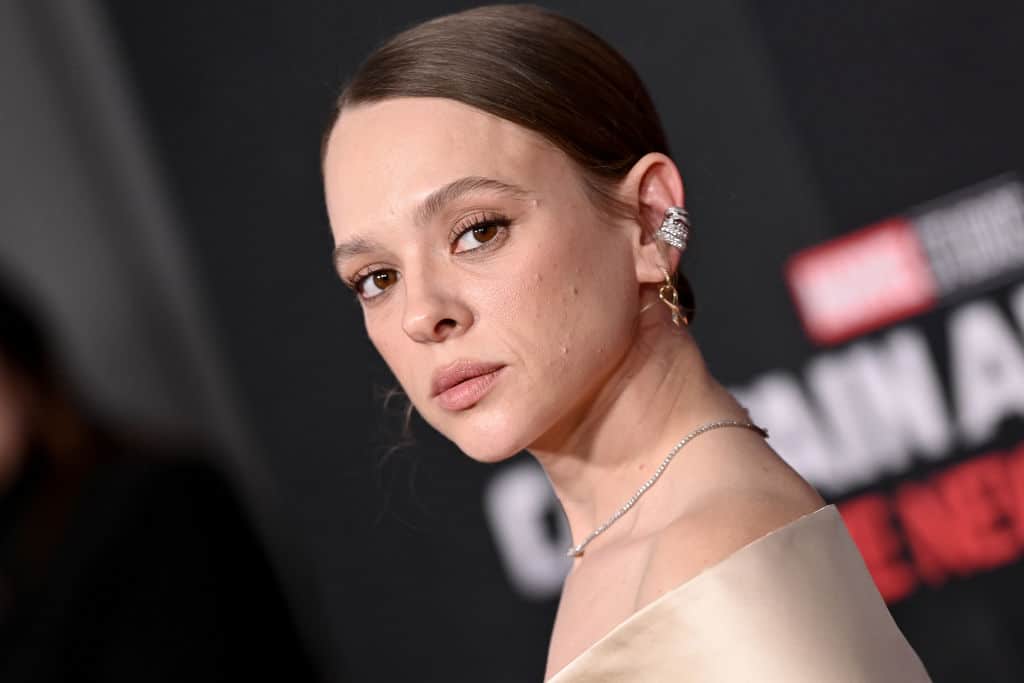
Rumors soon circulated that she was stripped of her Israeli identity and had even been rewritten as Russian. Others claimed that the character was poorly received in test screenings, resulting in significant reshoots.
The American Jewish Committee posted on X that Marvel’s “decision to strip the Israeli identity of Sabra is a betrayal of the character’s creators and fans and a capitulation to intimidation… Taking away such a central part of her identity would be like making Captain America Canadian.”
Related post: What do Gen Z Jews think about Marvel changing superhero Sabra’s Israeli backstory?
The Jewish Chronicle went further, calling it “a slap in the face to the American Jews who literally invented the comic book superhero genre.”
If the reports were true, they were absolutely right. Replacing an Israeli superhero with a Russian one — given Russia’s human rights abuses, invasion of Ukraine, and alliances with despotic regimes like Iran, China, and North Korea — would be baffling. Somehow, the idea of a Russian spy is fine, but an Israeli superhero, that’s where the line is drawn?
Marvel’s latest movie, “Thunderbolts*,” which opened May 2, stars David Harbour as Red Guardian, a former Soviet super-soldier. He even wears the red-and-white uniform from the comics. Yet despite the USSR’s countless horrors, there hasn’t been so much as a whimper from the self-proclaimed human rights champions who have protested Sabra.
Nor did they or the press have a problem with the “Ms. Marvel” show on Disney+, which depicts a one-sided account of Pakistan in the bloody 1947 partition with India and features a Pakistani hero named Red Dagger, all without mentioning the country’s religious fundamentalism or repression of minorities and women. But bring up Israel, and everybody loses their minds.
Marvel’s missed opportunity for transparency
It’s a double standard that Israelis and Jews in general have grown accustomed to. But Marvel emphasizes diversity so strongly, pointedly promoting movies and shows for their thoughtful representation (like “Eternals,” “Shang-Chi,” and “Black Panther”), that removing Sabra’s Israeli background because of pressure would have been a cowardly and shameful act of erasure.
But until the movie was released, any changes the character may have undergone were just unsubstantiated rumors, inflamed by social media. It didn’t help that Marvel remained opaque.
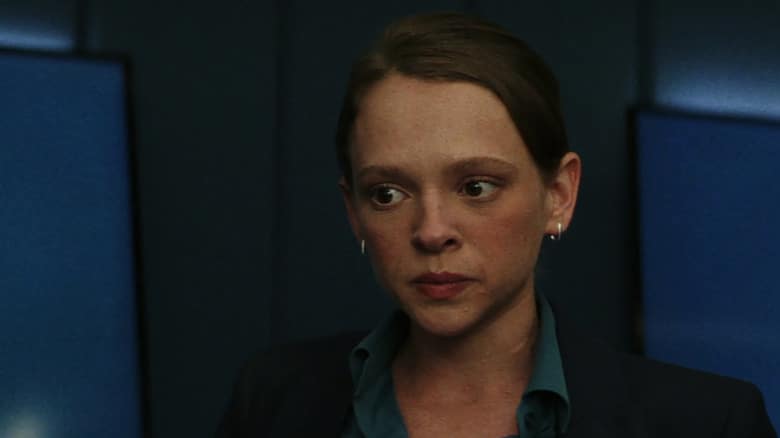
For almost two years, Marvel remained vague. The studio’s 2022 statement promised a “new approach,” but didn’t clarify what that meant. Was Ruth Bat-Seraph still Israeli? Still Jewish? Still Sabra?
Then came the July 2024 trailer. It introduced Haas as “Ruth Bat-Seraph, a former Black Widow turned high-ranking U.S. government official.” Gone were references to the Mossad. Still, fans noticed that she retained her Hebrew name and accent, suggesting her Israeli identity remained intact. But was she still the Israeli superhero Sabra?
In a February 2025 interview, Haas addressed the rumors directly, telling Israeli outlet Ynet, “the character was always just Ruth Bat-Seraph” and not Sabra.
“She was Israeli from the beginning…that hasn’t changed, and hasn’t changed following October 7,” Haas added.
The actress denied that Marvel tried to hide or minimize the character’s Jewish or Israeli signifiers, emphasizing that the studio chose an Israeli actress and that she was able to use her natural accent. Haas also described how she helped design a personal touch and a signifier of her Israeli identity: a ring bearing the Hebrew letter Aleph, the first letter in her late mother’s name, Ariela: “I pitched them the idea, and they loved it.”
The ring, which Haas kept, is visible in the movie only for brief glimpses, and the Aleph is never seen clearly.
While it’s stated that Ruth is Israeli and she speaks Israeli-accented English, she’s never referred to as Sabra.
She doesn’t wear her superhero uniform either — no white leotard or cape of thorns. (thorny like her namesake). Campy comic book costumes are often changed for the films, and Sabra’s would have never worked in this movie’s more grounded approach, or in any other.
Instead, she dons a modern black leather jacket with blue stripes that (very) gently hint at the Israeli flag, and in one brief scene, an armored vest that’s blue and almost-white polished metal. To tell the truth, it’s underwhelming, but it fits the character’s reimagined context.
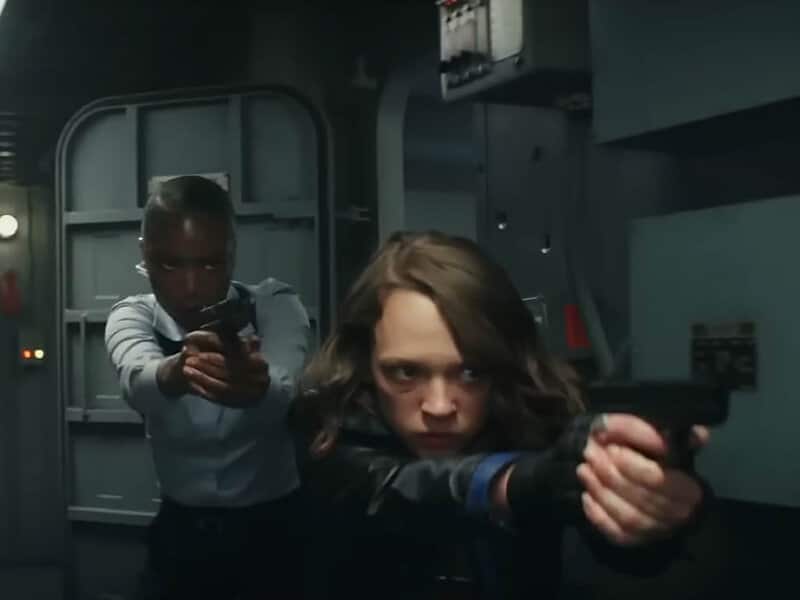
Reimagining Ruth Bat-Seraph
Instead of the comics’ superpowered Mossad agent, she’s a “Red Room” graduate, the same covert Soviet spy program that trained Jewish actress Scarlett Johansson’s Black Widow. How she got to be the U.S. president’s right-hand woman is never explained.
What has stayed true to the comics is her personality: a hard-edged company woman willing to do whatever it takes, which contrasts with Captain America’s distrust of President Ross. This could have made her an interesting character and an interesting political metaphor, but the film never digs deep into her backstory or into her character.
Haas is undeniably a good actress (especially next to Ford’s phoned-in performance), but she’s underserved by thin dialogue and an exposition-heavy script. She mostly just stands around glaring at people.
And despite her talent, Haas is also, to be honest, poorly cast. She lacks the physical presence the role demands. When she single-handedly takes out a special forces unit in hand-to-hand combat, it looks almost farcical.

Sabra’s comic book legacy
The comic book Sabra is an intimidating figure, which is part of why she’s always been problematic. Sabra made her first full appearance in “The Incredible Hulk” #256 (1981), created by writer Bill Mantlo and artist Sal Buscema.
Born outside Jerusalem and raised in a state-run kibbutz (which don’t exist), Ruth is a mutant (itself a Jewish metaphor) endowed with Superman-like strength, speed, and invulnerability, as well as the ability to heal herself and others. She’s Israeli, so naturally she’s also an expert in Krav Maga, and she has a cape that lets her fly.
She works as a Tel Aviv police officer until the Mossad calls on her for special missions, and she transforms into Sabra, Israel’s national superhero.
Her debut in the Hulk remains her most well-known and controversial appearance. She’s popped up sporadically since, but until now has been an obscure character, at least outside of Jewish comics fan circles. And for good reason.
Sabra was never meant to be the Israeli counterpart to Captain America, despite such claims in the press. She’s a national hero draped in a flag, but she’s always been defined by more criticism than valorization, whether fairly or not.
In her first appearance, she fights the Hulk because she thinks he’s working with terrorists, and when a little Arab boy is killed by their bomb, she seems almost indifferent, eager to keep on fighting, until the Hulk scolds her and “make[s] her see this…boy as a human being.”
Things didn’t improve much with time. Her comics were full of offensive stereotypes of both Arabs and Israelis, and she’s remained an unflattering character with little evolution. She’s a staunch nationalist, absurdly aggressive, and at times prejudiced, if not bigoted. She’s a character that should offend Jews, not antisemites. which is why it’s odd that Jewish press and leaders have embraced her with pride and cried out over changes for the movie.
Maybe they don’t know any better, knowing only the name and costume. Or maybe, with exactly two Israeli superheroes in mainstream comics, Israelis will take what we can get (the other is Seraph, also a stereotype, and reinvented as a Black American teenager anyway).
Jewish erasure in the Marvel Cinematic Universe
Sabra isn’t the only Jewish character to be diminished or rewritten in the Marvel Cinematic Universe. Several canonically Jewish characters have been made ambiguously religious or Christianized. Others, like Moon Knight, have been handled poorly.
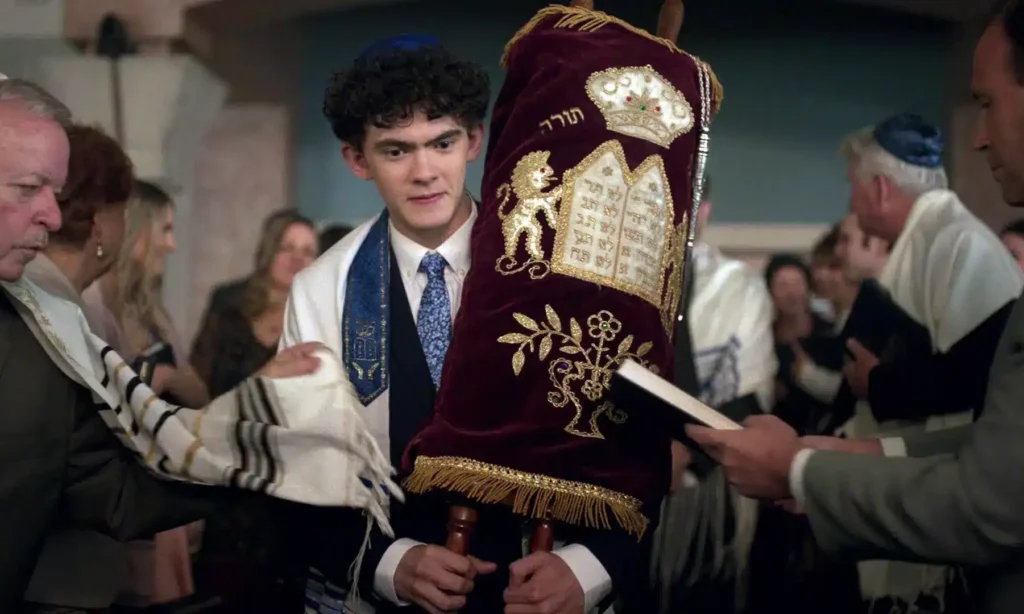
But Marvel has recently course-corrected, like in the recent “Agatha All Along” bar mitzvah episode. Early promotion for “The Fantastic Four: First Steps” has hinted that the Thing, arguably the most famous explicitly Jewish superhero, will finally embrace his heritage on screen for the first time (and he’s finally being played by a Jewish actor, Ebon Moss-Bachrach).
Honestly, Marvel deserves credit for even attempting Sabra, a character who was always going to be a lightning rod and a PR challenge, and for casting a real Israeli in the role.
The changes to Sabra haven’t satisfied the anti-Israel crowd, who protested the Hollywood premiere (Haas, on her part, wore yellow ribbon earrings for the hostages in Gaza). But the film’s underwhelming box office and middling reviews likely had more to do with fatigue over the franchise than any controversy.
The truth is, it’s high time that the character was reinvented. Israeli culture may be framed by its regional conflicts, but Israeli Jewish identity is much older and much richer. That’s what the character should represent. But she should be called what she is — Sabra.
